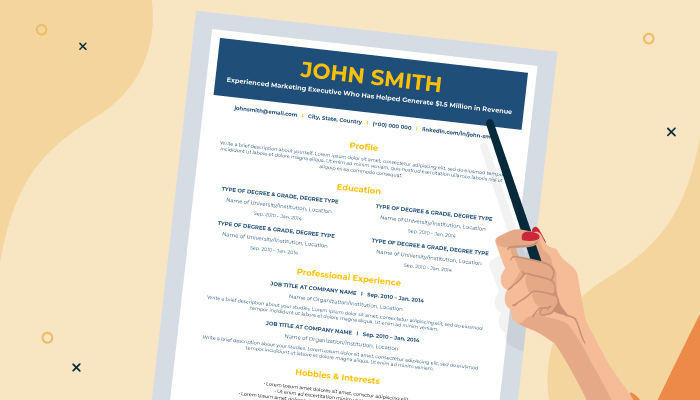Table of Contents
Introduction
In today’s competitive job market, recruiters spend mere seconds scanning each resume. This makes the headline—a concise summary of your professional identity—critical. It sits prominently at the top of your resume, right below your contact information. Think of it as your personal tagline—a brief yet powerful statement that encapsulates your career focus and value proposition.
Understanding Headlines
A resume headline is essentially a title that defines who you are as a professional. It should convey your core skills, experience, and career goals succinctly. Unlike a resume objective, which outlines what you seek in a job, a headline highlights what you offer to potential employers right from the outset.
Key Elements of an Effective Headline
A well-crafted headline is clear, specific, and tailored to the job you’re applying for. It should instantly grab attention and compel the recruiter to continue reading. For instance, instead of a generic “Experienced Marketing Professional,” opt for something like “Digital Marketing Strategist with 7+ Years Driving ROI and Brand Growth.”
Different Types of Headlines
thelouisianapost.com can vary based on industry norms and personal branding strategies. While some prefer straightforward headlines that list skills and experience, others opt for more creative or industry-specific approaches. Tailoring your headline to the job description and the company’s culture can significantly increase your chances of standing out.
How to Write a Compelling Headline
Crafting a compelling headline involves blending your key skills with an engaging narrative. Consider what sets you apart from other candidates and how you can express that uniqueness succinctly. For example, “Award-Winning Graphic Designer Specializing in UX/UI Innovations.”
Headline Examples Across Various Industries
Depending on your field, your headline may emphasize different skills or achievements. In IT, headlines might include specific technologies or certifications, while in sales, they could highlight revenue achievements or client relationships. Tailor your headline to showcase what’s most relevant and impressive about your career trajectory.
Common Mistakes to Avoid
Avoid the pitfall of creating a headline that’s either too vague (“Dynamic Professional Seeking Challenging Opportunities”) or overly specific (“Certified Scrum Master with Extensive Agile Experience”) without context. Your headline should strike a balance between broad appeal and targeted relevance.
Tailoring Your Headline to Different Job Roles
Customizing your headline for each job application demonstrates your understanding of the role’s requirements and aligns your qualifications with what the employer is seeking. This shows initiative and a genuine interest in the opportunity, increasing your chances of making a positive impression.
Incorporating Keywords in Your Headline
Incorporating relevant keywords from the job description into your headline can enhance your resume’s searchability. This practice, known as Search Engine Optimization (SEO) for resumes, ensures that your application gets noticed by Applicant Tracking Systems (ATS) and human recruiters alike.
The Impact of a Strong Headline on Your Resume
A strong headline acts as a hook, drawing recruiters into the rest of your resume. It sets the tone for the document and frames your professional narrative in a compelling light. A well-crafted headline can differentiate you from other candidates, even before a recruiter dives deeper into your qualifications.
Personal Branding Through Your Headline
Your headline is an opportunity to showcase your personal brand. Whether you’re known for innovation, leadership, or technical expertise, your headline should reflect what makes you uniquely qualified for the role you seek. It’s your chance to make a memorable first impression.
Headline Length and Formatting
Keep your headline concise, ideally under 10 words, to ensure it’s impactful and easy to grasp at a glance. Formatting-wise, consider using bold text or a slightly larger font size to make it visually distinct from the rest of your resume content.
Updating Your Headline Over Time
As your career evolves, so should your headline. Regularly review and update it to reflect your current skills, achievements, and career aspirations. This proactive approach ensures that your resume remains relevant and aligned with your professional trajectory.
Conclusion
In conclusion, a well-crafted headline on your resume can make all the difference in capturing a recruiter’s attention and advancing your career prospects. By focusing on clarity, relevance, and uniqueness, you can create a headline that effectively showcases your value as a candidate.



/cdn.vox-cdn.com/uploads/chorus_image/image/73219781/2089878063.0.jpg)
